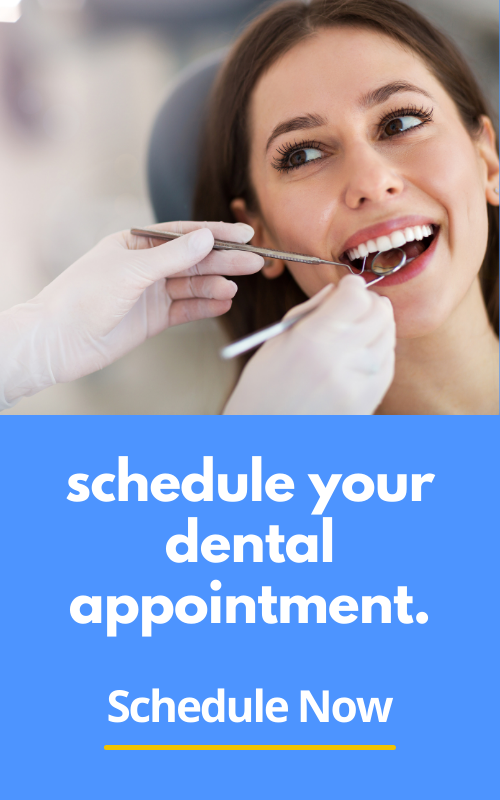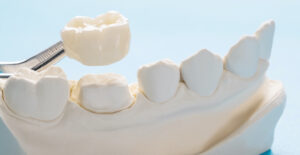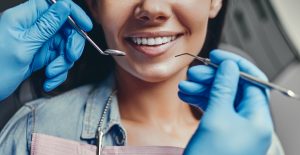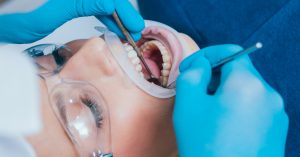Gum recession is a common dental issue that affects nearly half of all adults over age 30. It occurs when the gum tissue around your teeth begins to pull away from the tooth, exposing more of the tooth’s root. This exposure can cause sensitivity and discomfort and an increased risk of infection and tooth decay. In this blog post, we’ll discuss what can cause your gums to recede and how you can prevent it from happening.
Signs of Gum Recession
The first sign of gum recession is often a change in the appearance of your teeth. You may notice that the gum line has shifted down and away from the tooth, exposing more of its root. Other signs include sensitivity to hot or cold temperatures, pain when brushing or flossing, and bad breath. If you notice any of these symptoms, you must visit your dentist immediately so they can diagnose the cause and provide treatment if necessary.
Common Causes of Gum Recession
Several factors can contribute to gum recession, including:
• Poor oral hygiene: Not brushing or flossing regularly can lead to plaque buildup on your teeth which can eventually cause your gums to recede.
• Aggressive brushing: Brushing too hard or using a hard-bristled toothbrush can also damage your gums.
• Tobacco use: Smoking or chewing tobacco increases your risk for gum disease, which can lead to gum recession.
• Genetics: Some people are genetically predisposed to thinner gums, making them more prone to receding over time.
• Grinding and clenching: Teeth grinding (bruxism) and clenching put extra pressure on your teeth which can cause the gums around them to recede over time.
• Hormonal changes: Pregnancy, menopause, and other hormonal changes in women have been linked with an increased risk for gum recession due to hormonal fluctuations affecting oral health.
Preventing Gum Recession
Fortunately, there are steps you can take to prevent gum recession from occurring in the first place. These include:
• Practicing good oral hygiene habits: Brush twice daily with a soft-bristled brush for two minutes each, and floss daily using an up-and-down motion instead of sawing back and forth across your teeth. Make sure you’re also replacing your toothbrush every three months or sooner if it starts fraying or showing signs of wear.
• Quitting smoking/tobacco use: If you smoke or chew tobacco, quitting is one of the best things you can do for your overall health and oral health as it reduces your risk for gum disease, which is one of the leading causes of gum recession.
• Wearing a night guard: If you grind or clench your teeth at night due to stress or anxiety (or even if you don’t know why), wearing a night guard while sleeping will help protect them from further damage caused by grinding/clenching which could lead to gum recession over time.
Treating Gum Recession
If you already have some degree of gum recession, there are treatments available that can help restore some lost tissue depending on how severe it is. These treatments include scaling and root planing (a deep cleaning procedure), laser therapy (which uses light energy to stimulate tissue regeneration), grafting (which involves taking tissue from another part of the mouth and transplanting it onto areas where there is missing tissue), and surgery (which involves removing excess tissue).
Your dentist can recommend the best treatment option for you based on how severe your case is and any underlying causes that may be contributing factors, such as poor oral hygiene habits or smoking/tobacco use.
Gum recession is a common dental issue that affects many people. Still, fortunately, there are steps you can take both before it happens as well as after to treat any existing cases effectively if needed. Contact us today to learn more!












